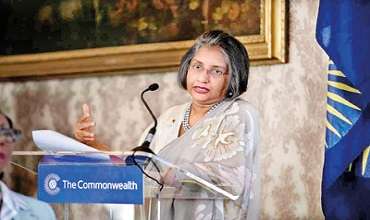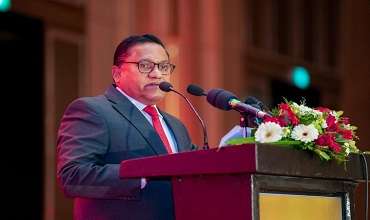- Last Update 2026-02-24 15:12:00
Sectoral Oversight Committee recommends not to privatise SLT
The Sectoral Oversight Committee (SOC) on National Security has recommended that Sri Lanka Telecom (SLT) should not be fully privatised as it would threaten national security.
In its report on "The effects of the privatization of Sri Lanka Telecom on National Security," which was presented to Parliament today by Committee Chair Sarath Weerasekara, the Committee points out that SLT is already partially privatized with international companies holding 44.98% of the stake and government holding 49.5%.
"Further privatization would expose the countries [sic] critical communication infrastructure / sensitive information to private entities whose profit oriented interests can compromise national security. Hence privatization of Telecom is not recommended," the Committee has stressed.
The Committee has added that anyone/organization who had been blacklisted/helped terrorists/extremists in any form should not be allowed to buy any share and have any control over the country's national assets.
The State can buy back the other large shareholder of Telecom as provided for in the agreement, divide the segments into sensitive & vulnerable, excess lands & buildings, critical infrastructure and the business. Whilst retaining the first segments affecting national security, the State can divest the others holding a major share through Private Public Partnership, ensuring critical infrastructure is protected and all government regulations are adhered to. This way the government can exit from doing business whilst making a profit and ensuring National Security, says the Committee.
You can share this post!
-
Still No Comments Posted.
Name
Content

- February 20, 2026 - 153 - 0
Maithree Wickramasinghe requests two weeks to give CID statement
Maithree Wickramasinghe, wife of former President Ranil Wickremesinghe, who was due to appear before the Criminal Investigation Department (CID) today to record a statement, has requested a two week period to provide her statement.

- February 14, 2026 - 130 - 0
Your Sunday Times highlights for this week
Read this week’s Sunday Times for your interesting articles
Related Articles

Top stories of the day
- 23/02/2026 - 78 - 0

Vijitha Herath to visit Germany and Romania
- 22/02/2026 - 102 - 0

Top stories of the day
- 20/02/2026 - 137 - 0

Maithree Wickramasinghe requests two weeks to give CID statement
- 20/02/2026 - 153 - 0






Leave Comments